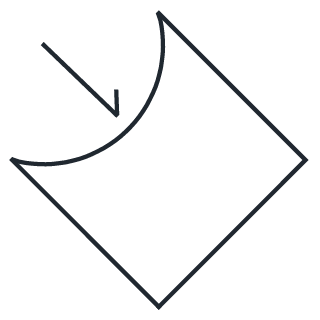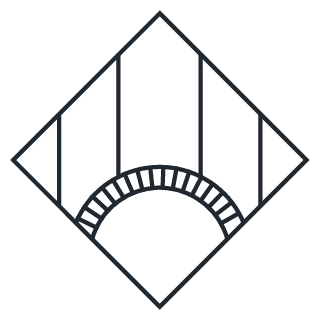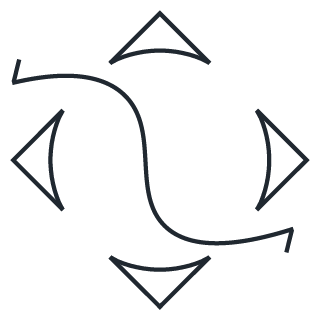Maakleerplek Innovation Hub
Stapelhuisstraat
Leuven
Belgium
- POLO - Vanhout.Pro - Infrabo
- University of Antwerp
- Sureal
The material traces of industrial activities are slowly vanishing from Western Europe’s urban centres. Globalisation has moved manufacturing overseas, while logistics and remaining industries relocated to suburban peripheries.
Relentlessly rising real estate values made property developers sit up and take note. They were quick to snap up and monetise industrial wastelands in strategic locations. The disappearance of these “terrains vagues” from the urban landscape led to the loss of a certain idea of indeterminate possibility in the margins of city life.
In Leuven the city council has taken firm control of a process of redevelopment centred around the industrial sites of the old Stella beer breweries. The aim is to create inclusive and sustainable communities instead of ghettos for the wealthy.
As part of this philosophy the city acquired a strategically located site with heritage buildings. Awaiting a more permanent destination, the Orshoven Mills complex is to become a haven for socio-cultural experimentation over the coming ten years. Next door a property developer is granting the city temporary use of a space underneath some concrete silos which are awaiting redevelopment.
POLO Interior design won a competition with a design which focuses on circular building strategies. Our aim is to achieve maximal effect through modest means, unlocking the potential of the impressive industrial spaces through a few precise design operations. This minimalist approach is motivated by budgetary constraints and the temporary nature of this intervention, but also keeps the design flexible and sustainable.
Our design attitude leads us to prioritise no-nonsense, practical solutions above any pre-conceived aesthetic effects. This is about letting go and giving back control to the enduser of the space.
Four guerrilla strategies to trigger and provoke
The city of Leuven wanted this site to become a space for making and learning (“een MaakLeerPlek”), to be made available for organisations, schools and citizens. The design should create the ideal circumstances for bottom-up initiatives to thrive.
For POLO this means designing “just enough”. The heritage buildings and silos provide a diversity of picturesque spatial conditions which are waiting to be exploited. Our goal is to provide different environments which can host a broad range of activities and be open to people from all walks of life.
There are four main “guerrilla” strategies we devise to activate the site. These become important visual markers which give a recognisable identity to our proposal.
"De Stelling"
is a metal scaffolding that covers the fragmentary back elevation of the Mills and transforms it into a main entrance. Facing a public square and the existing dock, this modular metal structure becomes a billboard for the new functions inside. Simultaneously it provides accessibility to the raised ground floor and bridges the level differences between the individual buildings whilst incorporating vertical circulation and improved means of escape.
"De Circulaire Gevel"
is a temporary facade using a demountable system of translucent polycarbonate panels and steel profiles to enclose the cathedral-like space underneath the concrete silos. Maximum spans were used so as to ensure flexibility when reusing. In our proposal this system can eventually be recycled into a greenhouse-like roof over the courtyard of the historic Mills compound.
"De Containers"
are shipping containers, refurbished into inhabitable modules by a Belgian company in Tanzania. They are placed within the expansive space under the silos to offer climate-controlled and flexible studio space. Here we also find a secondhand greenhouse that serves as a spray paint cabin. As time goes by blotches of colour will create expressive patterns on the glass from the inside.
Besides these major interventions, we focus on the essential upgrades needed to make the heritage buildings operational: technical installations, fire safety and weatherproofing. We adopt a low-budget approach to patch up existing interiors. Free tile samples are used to replace broken tiles. Missing ceiling panels and door architraves are cut to size from cheap OSB and plywood samples.
There is no attempt made to present an impeccable new state; we are at ease with exposing the imperfect process of refurbishment. We believe this aesthetic reinforces the low-profile, accessible atmosphere the project seeks to exude.
A temporary infill requires a specific approach to sustainability. We cannot rely on long time horizons and payback models when calculating financial and environmental costs. However, the specific project context proved a good testing ground for circular business models, in which building materials are leased instead of bought. Several contracts were drawn up between client and suppliers in which the latter promised to buy back materials when our design is dismantled in a few years.
In light of this we detailed structures which can be taken apart easily and non-destructively, using mechanical fastening instead of permanent adhesive bonding. The philosophy of the “Building As Material Bank” means all building materials should be able to be reused in a new constellation once a design has outlived its functionality. To this end we have written a manual with detailed instructions on how to adapt and reuse the different material components — to be used by building professionals and amateurs alike.
In general a light-touch, pragmatic sustainability was called for. This means sometimes doing nothing is the best course of action. For instance we chose not to insulate spaces which may be used only sporadically and will be refurbished again in a few years time. The investment and cost — economically as well as ecologically — might well be bigger than any hypothetical energy savings in the future.
Despite the challenges and the pandemic playing havoc with the building process, our team handed over the project after being on-site for just over 6 months. It is now in the hands of the endusers to make this complex their own. We cannot wait to see how they will build further on the foundations we laid, and will transform and subvert our design to make it into the dynamic, ever-changing space that suits their needs.















